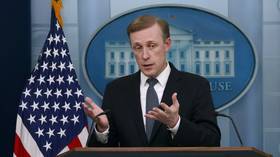Jamal Khashoggi Wasn’t the First — Saudi Arabia Has Been Going After Dissidents Abroad for Decades

THE STORY OF Jamal Khashoggi’s disappearance and possible murder has riveted the world’s attention with its macabre, and mysterious, details. The soft-spoken but sharply critical Saudi journalist vanished after entering the Saudi consulate in Istanbul, Turkey, on October 2. Theories about his fate include the horrifying possibility that Khashoggi was murdered — and perhaps even tortured and dismembered — at the hands of the Saudi state. (The Saudi government continues to vehemently deny these charges.) Should these allegations prove true, Khashoggi’s fate could have vast ramifications for the reputation of Saudi’s Crown Prince Mohammad bin Salman, known as MBS, who has until now sought to establish himself as a figure of modernization and reform. Already, Khashoggi’s case has elicited an unusually strong response from Western media and parts of the American government alike, casting Saudi Arabia’s geopolitical future in doubt.
For some, the prospect that the Saudi government would order the assassination of one of its own citizens abroad seems unthinkable. Yet Khashoggi’s case would not be without precedent. Saudi Arabia’s government has long sought to exert control of its people beyond the kingdom’s borders — a practice that has only intensified in recent years. “The case of Jamal Khashoggi, unfortunately, is only the tip of the iceberg,” said Rami Khouri, a senior public policy fellow and professor of journalism at the American University of Beirut. “If it’s proven that the Saudi government is behind his disappearance, it would only be the most dramatic example of a trend that has been ongoing for at least 30 to 40 years, but which has escalated under MBS.”
The crackdown has become so intense that many Saudis living abroad — even those who are not exiled activists — fear they could be targeted. Khashoggi’s story, and others like it, have left Saudi nationals questioning whether there is any distance sufficient to protect them from their government. “We constantly fear that we’re being watched,” one Saudi national living in self-imposed exile told The Intercept in June. “Even though many of us are not activists, we still worry that maybe something we say or do or post online will somehow endanger our families back home.”
In recent years, Saudi Arabia has employed a wide spectrum of tactics in dealing with dissidents abroad. Often, the Saudi government will begin with an attempt to persuade dissidents to cease their criticism or request that they return to the kingdom to sort out the issue on Saudi soil. Should these efforts fail, the government may move into a more coercive mode. Saudi activists abroad report receiving phone calls from their local embassies and consulates, urging them to come in for undefined reasons. “None of us would ever actually go to these meetings,” one Saudi activist, currently living in the United States, told The Intercept several weeks before Khashoggi’s disappearance. “We know inside there, anything could happen.”
Read More...
Related Articles:
Media companies are pulling out of a Saudi investment conference as outrage grows over the journalist who went missing inside a Saudi consulate in Turkey earlier this month, Reuters reports. Economist Editor-In-Chief Zanny Minton Beddoes will not participate in the Future Investment Initiative conference in Riyadh, spokeswoman Lauren Hackett said in an email.
The Washington Post has provided further details on its prior reporting that US intelligence knew full well that Saudi Arabia was seeking to lure the now disappeared and allegedly murdered journalist Jamal Khashoggi to its embassy in Istanbul in order detain or kill him... What's more is that NBC now reports that the Turks had the Saudi consulate bugged with listening devices before the disappearance and what now appears to be gruesome murder — which suggests Turkey is currently in possession of an audio recording of the alleged killing.
British billionaire Richard Branson said on Thursday that his Virgin Group would suspend its discussions with Saudi Arabia’s Public Investment Fund over a planned $1 billion investment in the group’s space ventures, in light of the disappearance of Saudi journalist Jamal Khashoggi, Reuters reports.
Twenty-two US senators on Wednesday forced a US investigation of whether human rights sanctions should be imposed over the disappearance of Jamal Khashoggi, a Saudi journalist last seen as he entered the Saudi consulate in Turkey on Oct. 2, Reuters reports. In a letter, the senators said they had triggered a provision of the Global Magnitsky Human Rights Accountability Act requiring the president to determine whether a foreign person is responsible for a gross human rights violation.



